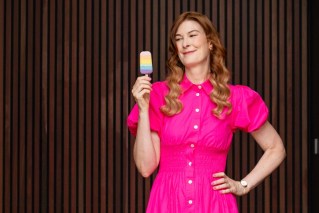Older people know four secrets to happiness


Shutterstock
A survey of more than 50,000 households has found that over-65s are the happiest segment of the Australian population while those in their 20s and 30s are the least happy.
What’s more, the Alere Wellness Index survey found that older people tend to be more upbeat about life despite being less fit and more prone to illness than those younger than them.
Which raises the question: what can young people learn about happiness from their elders?
Well, quite a lot actually. Here are four key things.
1. Acceptance
As we get older we learn acceptance. We are never going to get younger, our days of outstanding beauty and fitness are behind us, if we aren’t President of the USA or the richest person on the planet by the time we are 60 it is unlikely to happen.
We can bemoan our ill fortune and be unhappy or we can accept reality. When you are older it is easier to accept reality because it hits you in the face. The young have more options. If you are 65 all the cosmetic surgery in the world isn’t going to turn you into a film star – when you are 20 there is still hope.

The key to wisdom is learning, but not all learning comes from books.
2. Wisdom
Developmental psychologists tell us that the adult brain has five possible stages of development. The least mature stage is “egocentricism”. At this stage we are completely self-obsessed. While this can drive us to great heights of success (or depths of despair and depravity) it rarely leads to happiness. Egocentric happiness demands that we get everything we want exactly when we want it. This is highly unlikely to be a constant possibility and even if it were, the egotist simply wants more.
The next stage – socialised – is about fitting in. The happiness and self-image of the socialised person comes entirely from outside themselves. If they have a lot of status symbols, public acceptance and material possessions the socialised person is happy – so long as they don’t have to engage in much change. Socialised people don’t like change as it upsets the status quo on which they rely for their sense of identity.
A more mature level of development is independent. People who get to this level have a deep inner sense of self. They know and are happy with who they are. For independent thinkers happiness is an inside job. They have a clear set of values and live their lives in tune with these values. They have deep inner reserves of character and the capacity to self-comfort and self-nurture.
While there are two further stages of development, 99 per cent of people fall within the first three states. To find out what happens when we go into the higher levels of development, click on the owl.
3. Safety
Our brains work better and are happier when we feel safe. Most workplaces are emotionally unsafe and therefore much less productive than they could be. When we retire, we can create our own safety. The truth is we can do this at work too. It just takes a little more thought and effort.
Emotionally safe workplaces where people are supported and challenged to grow intellectually, emotionally and spiritually are more creative and make more money than those which keep people in fear and at lower levels of consciousness. Independent thinkers create their own emotional safety, they ‘do’ life more skillfully and are therefore happier wherever they are.

What more could you ask for?
4. Security
While a larger percentage of older people own their own homes (mortgage free) than any other age group, there is huge disparity between high-income older people and those at the other end of the spectrum – the majority of whom are women. Older people in the “happiest age group” are more likely to be living on fixed incomes including around 70 per cent who live partially or fully on the age pension (currently around $425 per week). As this is insufficient for many people to cover basic necessities many workers seek to delay retirement.
Even while they are poor, sick and old, these people are happier. As we age there is a good chance that we have lost loved ones, friends, and fortunes through the ups and downs of a longer life. This provides more opportunities to raise our consciousness and go up the levels of thinking. We rarely grow when life is rosy. Suffering helps us realise what really matters – family, friends, love, kindness and life itself.
As the saying goes: “Getting older is hard – but it is better than the alternative”.
When your time is running out it just gets sweeter especially if your consciousness rises with the years.
Margot Cairnes, an international change agent with a corporate consulting career spanning three decades, is the creator of the cloud-based training system, 12 Steps For Business (12SFB): [email protected] She will write regularly for The New Daily on management and leadership.








